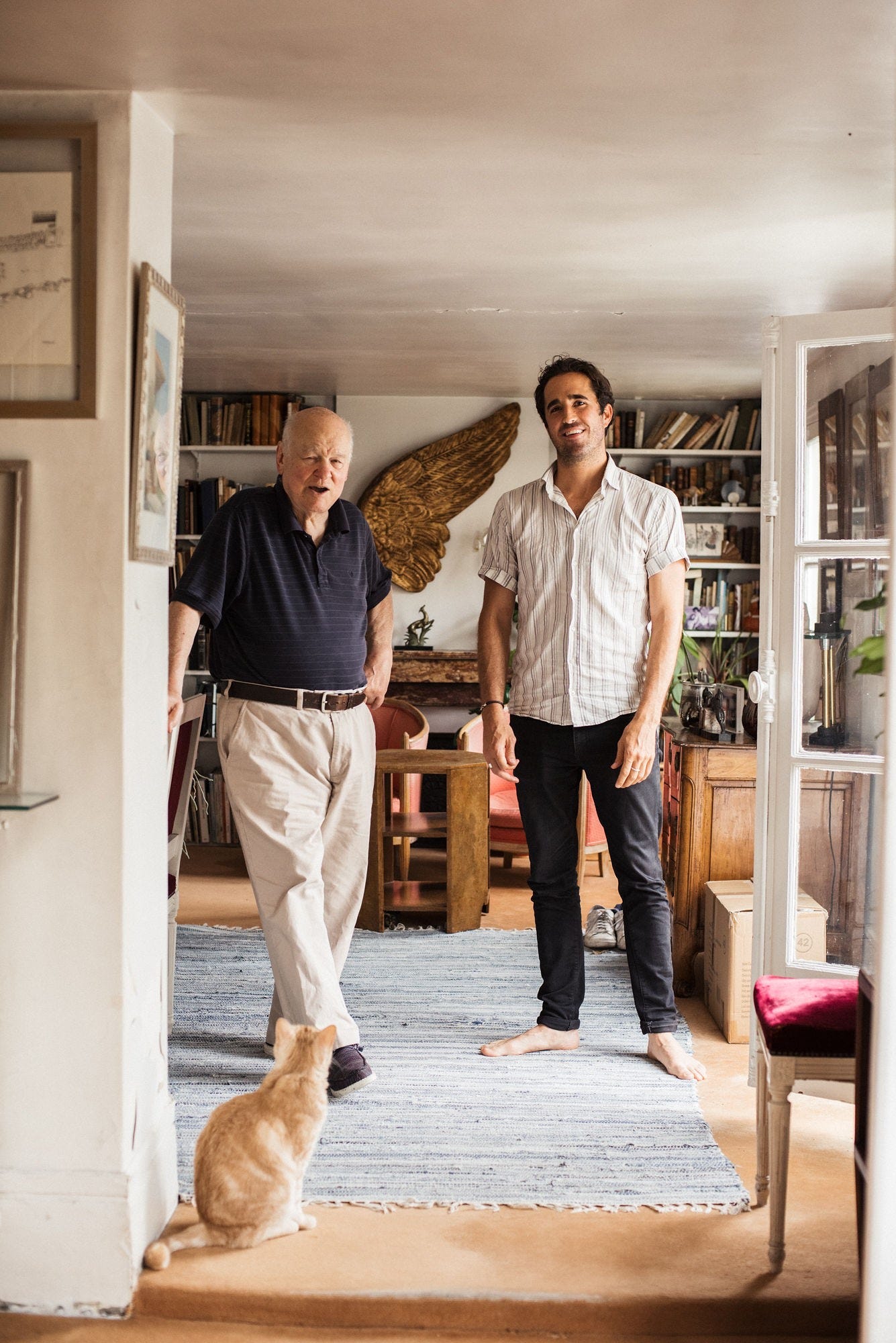TALKING WITH PEOPLE WHO LIKE TO TALK BOOKS
Kasper Gutman. You're a close-mouthed man?
Sam Spade: Nah, I like to talk.
Gutman: Better and better. I distrust a close-mouthed man. He generally picks the wrong time to talk and says the wrong things. Talking's something you can't do judiciously, unless you keep in practice. I'll tell you right out, I am a man who likes talking to a man who likes to talk.
- The Maltese Falcon (1941), screenplay adapted from Dashiell Hammett’s novel by John Huston.
Just before the Covid lockdown, fellow expatriate writer Samuel Lopez-Barrantes and myself planned an international incarnation of the literary salon, based in my apartment on rue de l’Odéon, in the same building where Sylvia Beach and her companion Adrienne Monnier played hostesses to writers and artists between the world wars. When the pandemic made it impossible for people to participate physically, we adapted the idea to the internet via Zoom, and the Paris Writers’ Salon was born.
For each of the five Salons so far completed, participants read and talked about three books related by theme, with a fourth session devoted to general discussion. Authors have included Ernest Hemingway, Colette, Zelda Fitzgerald, James Baldwin, Edmund White, Louis Aragon and – very much a minnow in such company – myself.
For the sixth Salon, running from November 27th to December 18th, each Sunday evening, Paris time, but morning to mid-day in the USA, we’ve borrowed a term from the Cannes Film Festival, which has a category called Un Certain Regard for films that take an oblique and unconventional look at established social institutions. We’ll be discussing:
The House of Madame Tellier by Guy de Maupassant. In this novella, de Maupassasnt, master of the ironic short story, probes the role of the legalized brothel in the life of a Normandy port town and, by implication, the whole of France.
Inseparable by Simone de Beauvoir. This story was written in 1954 but suppressed, as its picture of the intense friendship of two schoolgirls was thought too provocative. Only recently rediscovered, the new edition is introduced by Margaret Atwood.
Finally, Immoveable Feast: A Paris Christmas is my own seasonal take on a complex French institution.
The idea of the salon isn’t new. A few people of shared values and enthusiasms gather regularly, usually in a private home, for the purposes of conversation. A topic is proposed in advance. There’s food and drink but the real meal is words.
As with sex and food, the salon was raised to the peak of refinement by the French. During the late nineteenth century, salons were the literary playground of Paris. These weekly gatherings in the homes of the rich provided the talented with a chance to meet and display their wit, intelligence and charm.
Things didn’t always go as planned. In his study of la belle époque, The Banquet Years, Roger Shattuck describes the autocratic salon of a Madame Auberon, who
conducted her salon like a lion tamer. About a dozen guests attended her poorly cooked dinners in the Rue d’Astorg, and Madame Auberon alone decided the subject for discussion. One guest at a time was permitted to orate, and his chances of a second invitation depended on the brilliance of his performance. The hostess silenced any disorderly interruption by ringing a little porcelain bell which stood at her right hand. One evening when Renan was discoursing at some length, she had several times to call to order the dramatist Labiche. When she finally asked him to speak, he admitted with some reluctance that he had only wanted to ask for more peas.
On another occasion, Madame Auberon asked D’Annunzio point-blank what he thought of love; his reply was not designed to bring him a second invitation. “Read my books, madame, and let me eat my dinner.” A lady, asked with similar abruptness to speak her piece on the subject of adultery, replied, “You must pardon me, Madame. For this evening I prepared Incest.”
The Paris Writers’ Salon convenes on four successive Sundays at times convenient to members on both American coasts as well as those in continental Europe. The 4-week program costs $300 or €300. This includes access to all discussions (as well as recordings), plus a digital “packet” of pertinent literary and historical information and recommendations to help guests on their 4-week virtual journey to the City of Light. For more information, and to sign up, go to the following.
https://www.johnbaxterparis.com/paris-writers-salon
https://www.samuellopezbarrantes.com/thepariswriterssalon


No comments:
Post a Comment
Note: only a member of this blog may post a comment.